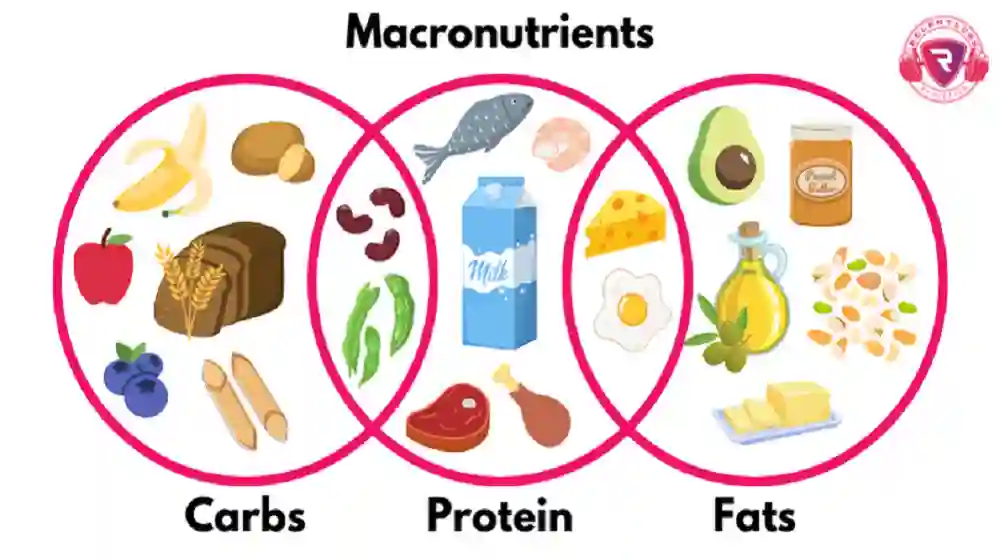How Nutrition Affects Athletic Performance

Okay, picture this: You’re in the middle of a race, sweat dripping, legs burning, and every fiber of your body is telling you to quit. But then—bam—you push through. You cross the finish line. What was the magic that made you power through? Nope, not some miracle protein shake. It’s the way nutrition affects your body that made all the difference.
The Fuel You Need: Let’s Break It Down
When people talk about “fueling your body,” they’re not talking about just any food. Trust me, I learned that the hard way. There was this one time I tried to carb-load before a 10k with a pizza and soda. Yeah, my stomach felt like a war zone. It wasn’t pretty. Nutrition affects athletic performance in ways you probably don’t even realize, starting with your basic energy sources: carbohydrates, proteins, and fats.
Carbs: The Powerhouse Fuel
First, carbs. Carbs are your best friend, especially if you’re doing something high-intensity. They’re the easy fuel that your body taps into for quick energy. But listen—don’t make the rookie mistake of thinking all carbs are the same.
There are good carbs—like whole grains, fruits, and veggies—and then there’s the sugary stuff, which will have you crashing before you even get to the halfway mark. Trust me, I’ve learned this lesson. I tried to power through a 5-mile jog once with a donut as my pre-run snack. Spoiler alert: I barely made it past the first mile.
Anyway, here’s the kicker: nutrition affects your body’s energy stores. When you have the right carbs, you can keep that engine running without hitting a wall.
Protein: The Muscle Maker
Alright, now for the muscle part. Protein. I know, I know—everyone tells you to eat protein, but why? Here’s the deal: Protein’s like the construction worker that comes in after a demolition, rebuilding and repairing. Every time you work out, you tear your muscle fibers, and without enough protein, they can’t repair and grow.
My first gym experience? Hilarious. I was bench pressing like a maniac, but didn’t have enough protein afterward. I could barely lift a grocery bag the next day. Nutrition affects muscle recovery in a big way.
I learned pretty quickly—after the third bout of sore arms—that hitting your protein goal is non-negotiable. So, whether it’s a chicken breast, tofu, or the elusive “perfect” protein powder, just get it in you. You’ll thank me later.
Fats: The Endurance Lifesaver
Okay, here’s a fun fact that might surprise you: Fat isn’t bad. Especially for endurance athletes. That’s right—fat helps fuel long-term energy needs. When I used to run long distances, I thought fat was the enemy. Fast forward to me passing out from exhaustion on mile 15 of a half-marathon… not my proudest moment.
Fats, like the ones found in avocados, nuts, and olive oil, are essential for endurance. Your body taps into fat stores during prolonged exercise. Think of it as your backup battery. You can’t sprint on fat—nope, that’s where carbs come in—but for those long, slow burns? Fat is your go-to.
How Nutrition Affects Your Endurance and Performance
I remember one time, about a year ago, I tried to power through an 8-mile run after barely eating anything. I didn’t even have water with me. Big mistake. Big. Fat. Mistake. By mile 5, I was walking, gasping for air, wishing I had thought this through. So, yeah, nutrition affects your endurance—big time.
Pre-Workout Fuel: You Gotta Eat Right
Here’s a thing I wish someone had told me when I was first starting out: nutrition affects your workout from the second you get out of bed. If you don’t eat the right stuff before hitting the gym or going for a run, you’re in for a rough time.
I learned this one afternoon when I skipped breakfast because I was running late (classic). A granola bar before my workout? Nah, didn’t cut it. I felt like I was dragging a cement block on my back the whole time. You need something with carbs for energy, protein for muscle support, and some fat to keep you steady.
My pre-workout meal:
✔️ A bowl of oatmeal with banana slices (hello, slow-burning carbs!)
✔️ Scrambled eggs with avocado (get that protein and healthy fats)
Seriously, don’t skip this. It makes a massive difference in how your body performs, and how nutrition affects your energy levels.
Hydration: The Unsung Hero
Listen up. Nutrition affects not just what you eat, but also what you drink. I can’t count how many times I underestimated hydration. I’ve done the whole “skip water for a few hours” thing to “keep my weight down.” Spoiler: It made my workouts a million times harder, and I didn’t lose an ounce.
Water isn’t just for keeping your thirst at bay—it helps transport nutrients to where they need to go. Dehydration can slow you down, make you cramp up, and mess with your focus. If you’re working out hard, you need to hydrate properly, with some electrolytes thrown in there, too.
Post-Workout Recovery: The Real Work Begins
Fast forward past three failed attempts at recovery shakes, and let’s talk real talk: nutrition affects how well your body recovers post-workout. When I first started working out, I’d do a killer session and then… nothing. No protein, no carbs, just a vague hope that my body would magically heal itself. Spoiler alert: It didn’t.
Here’s the deal. The “anabolic window” (sounds fancy, right?) is real. This is when your body is most receptive to nutrient intake, usually within 30-60 minutes after exercise. If you don’t refuel during this window, recovery takes longer, soreness lingers, and you’re back at square one.
My Recovery Meal:
✔️ A protein shake with almond milk
✔️ A side of sweet potato
✔️ A banana (for carbs)
It doesn’t have to be a whole feast, but get some fuel in you. Trust me, your body will thank you the next day when it doesn’t feel like a sack of potatoes.
The Little Things: Micronutrients Matter Too
You know how your grandma always told you to eat your veggies? Turns out, she was onto something. While macronutrients get all the glory, those tiny micronutrients play a huge role in your athletic performance.
Iron helps oxygen get to your muscles. Without it? You’re gonna feel sluggish.
Magnesium keeps your muscles from cramping—something I learned after a night of intense leg cramps in the middle of a marathon training run.
And vitamin D? Yeah, it helps with bone health, especially when you’re doing heavy lifts. The last thing you want is a stress fracture, trust me.
How Nutrition Affects Focus and Mental Clarity
Let’s be real: You could be in the best shape of your life, but if your mind isn’t sharp, you’re gonna lose. Nutrition affects your brain too, y’all. I mean, have you ever tried to make a quick decision on an empty stomach? It’s like trying to think through a fog.
- Omega-3 fatty acids (found in fish) can boost brain function.
- Stable blood sugar levels help with focus—no more hangry moments.
Conclusion: Eat Like a Champion
Okay, so here’s the takeaway. Nutrition affects everything you do. Whether you’re hitting the gym, running a race, or even just trying to get through the day without crashing, what you eat and drink makes all the difference. And let me tell you: If you skip the good stuff, you’ll pay for it.
So, fuel up right. Your body’s a high-performance machine, and it’s time to treat it like one. Trust me, I’ve tried the shortcuts—and they don’t work. Get your carbs, protein, fats, and hydration right, and watch your performance skyrocket.
Now go out there and crush it, fuelled by what you know works. And don’t forget to drink your water—just trust me on this one.







